Ulog 12: A wasteful evening
It's been another busy weekend! So I'm only just now getting round to writing about the event I attended on Wednesday evening. It was all about waste – and what we can do to stop it piling up.
This is a subject that interests me and occasionally depresses me. However I think we need to learn to move beyond our feelings of depression and impotence about waste, and instead to look at how best to deal with this very modern challenge.
The event I attended, called "Full Circle", with reference to the idea of a "circular economy" provided so many inspiring ideas for making waste productive.
It was hosted by a shop called Locavore, an independent sustainable food enterprise based in Glasgow.
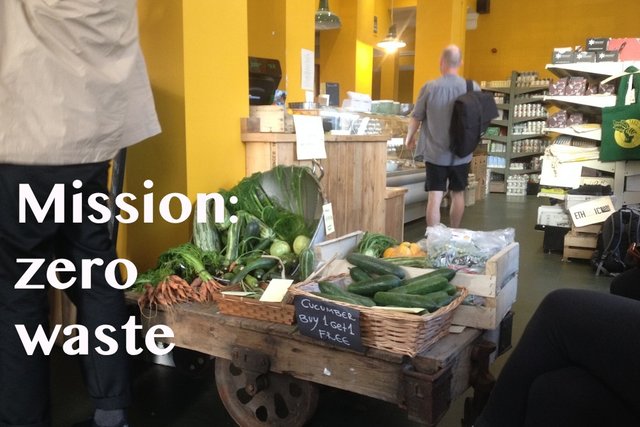
Locavore has a market garden and a veg box scheme as well as a large shop. In the summer of 2016 I participated in their "Grow the Growers" scheme, whereby they lease you a section of their land, and you grow vegetables for them.
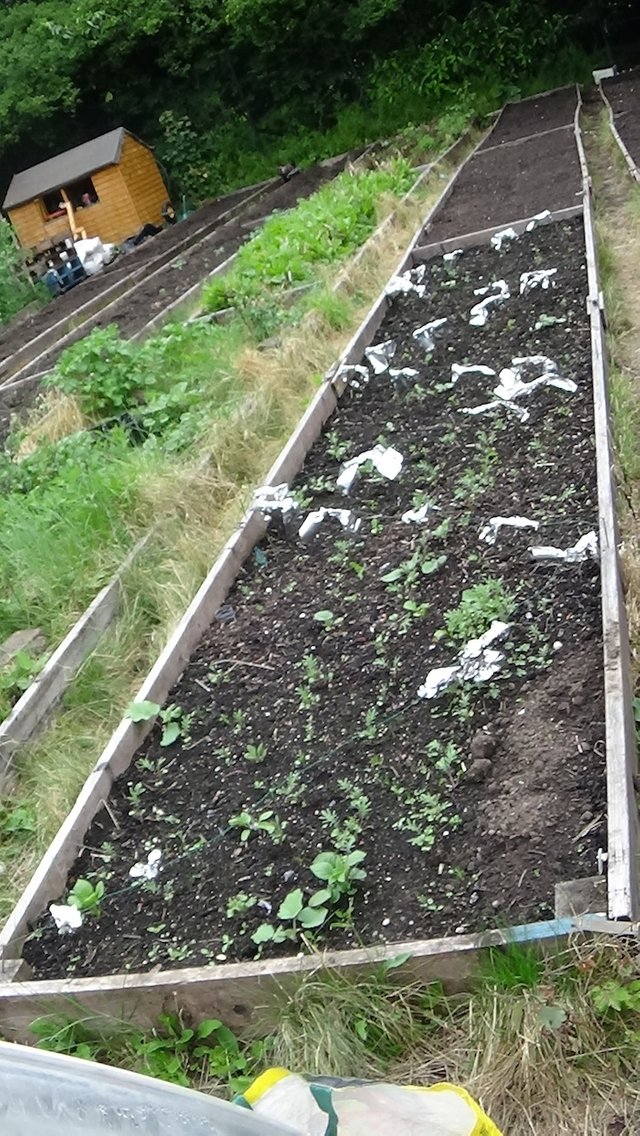
A full house
The first surprise of the evening was the number of people in attendance! The event was scheduled at 7.30 for an 8pm start. I arrived just before 7.30, and the only seats available were right at the back of the room.
Most of the audience were young people. I think it's great to see a new generation of people eager to get involved in looking after the planet, wanting to know where their food comes from and asking questions that make complacent people feel uncomfortable.
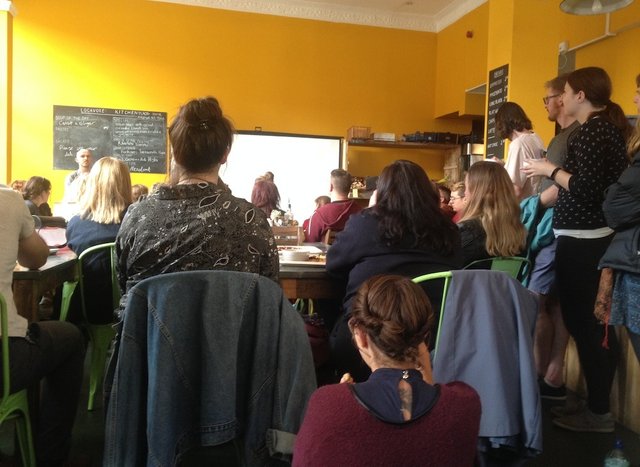
This was a ticketed event, with tickets just a "suggested donation" of £5. I'm guessing the takings were good, as delicious home-made snacks were served throughout the evening!
The speakers included a French couple called Lucile and Damien, who have been trying to follow a "zero waste" lifestyle for the past couple of years. They admitted that although zero waste is their ideal, minimal waste is their realistic goal.
I asked them a question. I didn't want to put them on the spot, although as I tried to project my voice from my seat at the back of the room, I might have sounded pretty impassioned!
"What about electronic waste?"
That was the question I posed. I see a lot of government and media attention on household waste, I said, but hardly any focus on computer and electronic waste. In fact, the opposite occurs – consumers are actively encouraged to upgrade their cellphones, laptops and computers. We are frequently encouraged to upgrade the software for our devices, and within a few years the memory requirements for the upgraded software renders them virtually obsolete.
There are people who love having the latest version of their iPhone or laptop, who even queue outside the Apple shop when a new model is to be released. But there also many people, like myself, who love their old favourite model and couldn't care less about having the latest version.
Obviously the manufacturers benefit from this "planned obsolescence", but the majority of us don't benefit from it, and the planet certainly doesn't.
Cellphone batteries are made using rare earth materials, which are often extracted using child labour, as well as a variety of plastics. The film The Lightbulb Conspiracy shows disturbing footage of computer waste being dumped in Ghana (around 38 minutes into the film). But this problem is rarely addressed on the websites that express concerns about population issues and our carbon footprint.
When I broached this subject in my question to the couple, Damien did look a little uncomfortable – maybe because, as he said, he works for an electronics company. I didn't intend to make him feel uncomfortable. I admire what Damien and Lucile are doing, bringing this issue to people's attention.
Lucile stepped in to provide a confident answer, saying that they do use a computer but that they are looking at ways of making their use of electronics more sustainable.
And that is really what I was asking for. I have no intention of giving up my cellphone, or my computer, but I would like to be able to use these devices without feeling that pressure to constantly upgrade. I would also like to see more sustainable options available on the market.
Later on, a woman sitting nearby reminded me that there is a more sustainable phone on the market. The "Fairphone" is designed to be repairable and future-proof, and is made from "conflict-free materials".
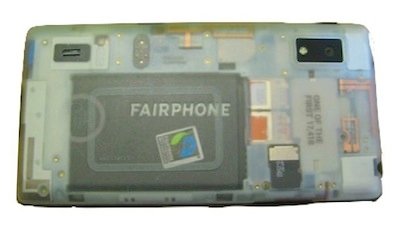
Source
I had heard about the Fairphone when it was in production, but I'd forgotten about it, as I haven't upgraded my phone for years. So… maybe my next phone will be a Fairphone.
A mixed bag
One thing that concerns me in the "zero waste" debate is the mixed messages. On the one hand, the consumers – the "end users" – are encouraged to recycle as much of our waste as possible, to worry about our "carbon footprint"; to pay for plastic bag use in shops.
On the other hand, this is considered perfectly normal:
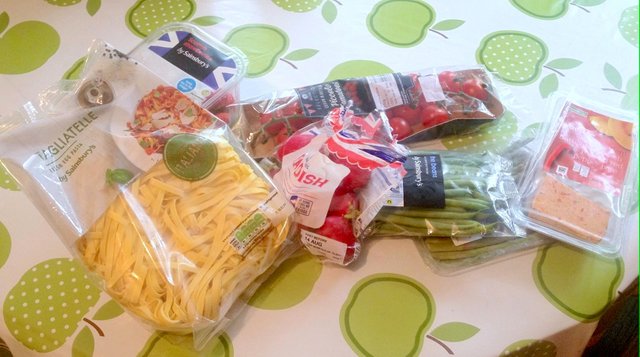
What's the point of reducing plastic bag use when most of the shopping we buy comes swathed in plastic?
This is the kind of issue that can make many people, myself included, think there's no point even trying to improve things. We refuse single-use plastic shopping bags, we carefully recycle our rubbish… but when we go to the supermarket, we are faced with this! Where do we even start?
Upcycling is cool
It's not all gloom and doom. The fact that an evening talking about waste was a sell-out, with people standing in corners and sitting on the floor just so they could listen to the speakers, shows the amount of motivation there is for change.
There were some incredibly inspiring messages at this event. One speaker told us about an upcycling project called Rags to Riches. Another person spoke about a pop-up "tool library" where specialist tools can be lent out instead of being bought, used once or twice and then left to rust.
Fairer fashion
One of the most interesting speakers for me was a textile designer called Kat Garbutt. A recent graduate from Tama Art University in Tokyo, she spoke about the problem of waste in the fashion industry, as well as the unethical labour practices, and the exciting initiatives that are being set up in order to overcome these issues.
I remember feeling horrified about the Rana Plaza disaster in Bangladesh five years ago, where more than 1100 factory workers lost their lives. I was dismayed at the way that the big retail companies whose clothes had been made by these workers simply tried to distance themselves from the tragedy.
My reaction at the time was to distance myself from those big companies, to try and find out where the clothes I bought were made, and in what conditions the workers were operating. But it was so difficult to find out!
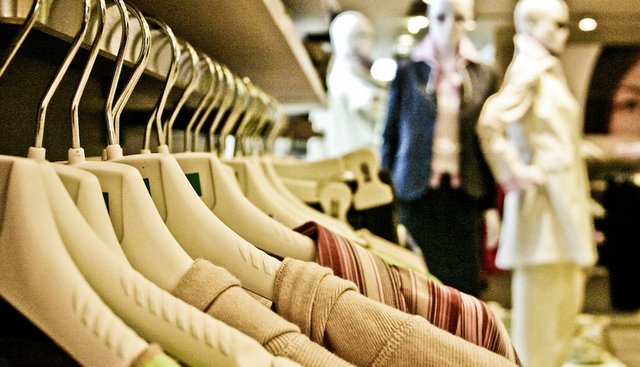
Well, it seems that some small but positive developments have been taking place in the last five years. Kat Garbutt's presentation showed that there are several small clothing firms that are making fair labour standards their business. I'll write more on this subject in a future post.
I left the Full Circle event feeling uplifted, with lots of food for thought. I'm really looking forward to the next one!
.gif)
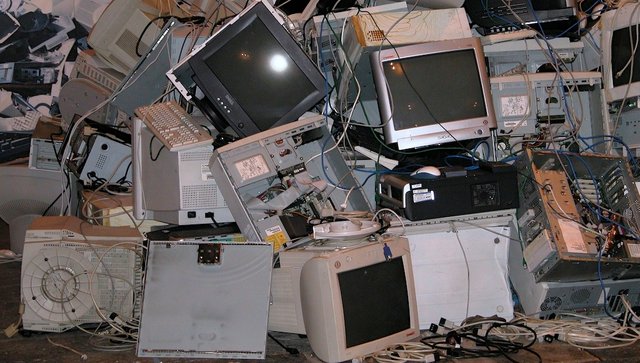
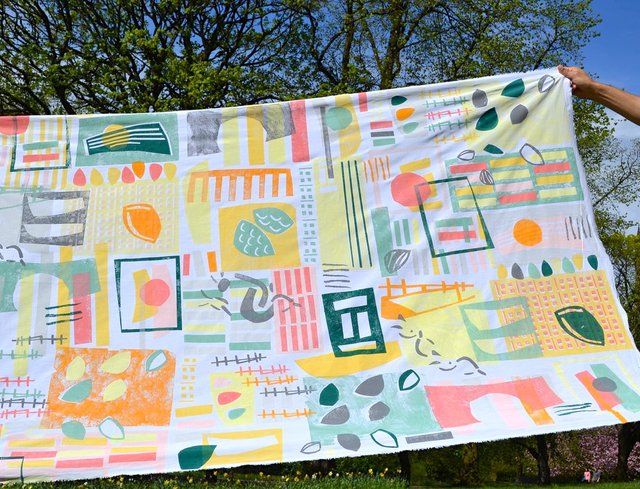
Congratulations! This post has been chosen as one of the daily Whistle Stops for The STEEM Engine!
You can see your post's place along the track here: The Daily Whistle Stops, Issue 228 (8/16/18)
The STEEM Engine is an initiative dedicated to promoting meaningful engagement across Steemit. Find out more about us and join us today.
Good for you on speaking up and asking the question about electronics. My guess is that while they could tell you about the Fair Phone, I am guessing the didn't have their own for a "show and tell" session.
It is so bad now with plastic that each individual cheese slice has it's own wrapper of plastic.
I'm not a big fan of recycling programs when it comes to plastic because all those programs involve separate collection trucks to pick up the stuff and then those sorting and cleaning stations use a lot of water to clean the plastics and water is in short supply in several areas of the world.
There has to be way to package things in a biodegradable form of packaging that would be more environmentally friendly. It will be interesting to see where this group goes with what they are working on.
I'm definitely going to write another post on plastic, because there's much more to be said on this subject. Re-recycling - years ago, before I was made redundant from my job as a trade magazine editor, I was invited to a city up north to judge a food contest (which was fun!). The evening before the contest, the judges were invited to dinner with local dignitaries, including several councillors (local government reps). After dinner, some of the councillors started talking about recycling programmes, and one of them said, "Until recently, all different colours of glass were recycled together, but we still got the public to sort them into different containers, as it made them feel more actively involved."
That sounds like a typical government way of thinking. I hope you do write more on it.